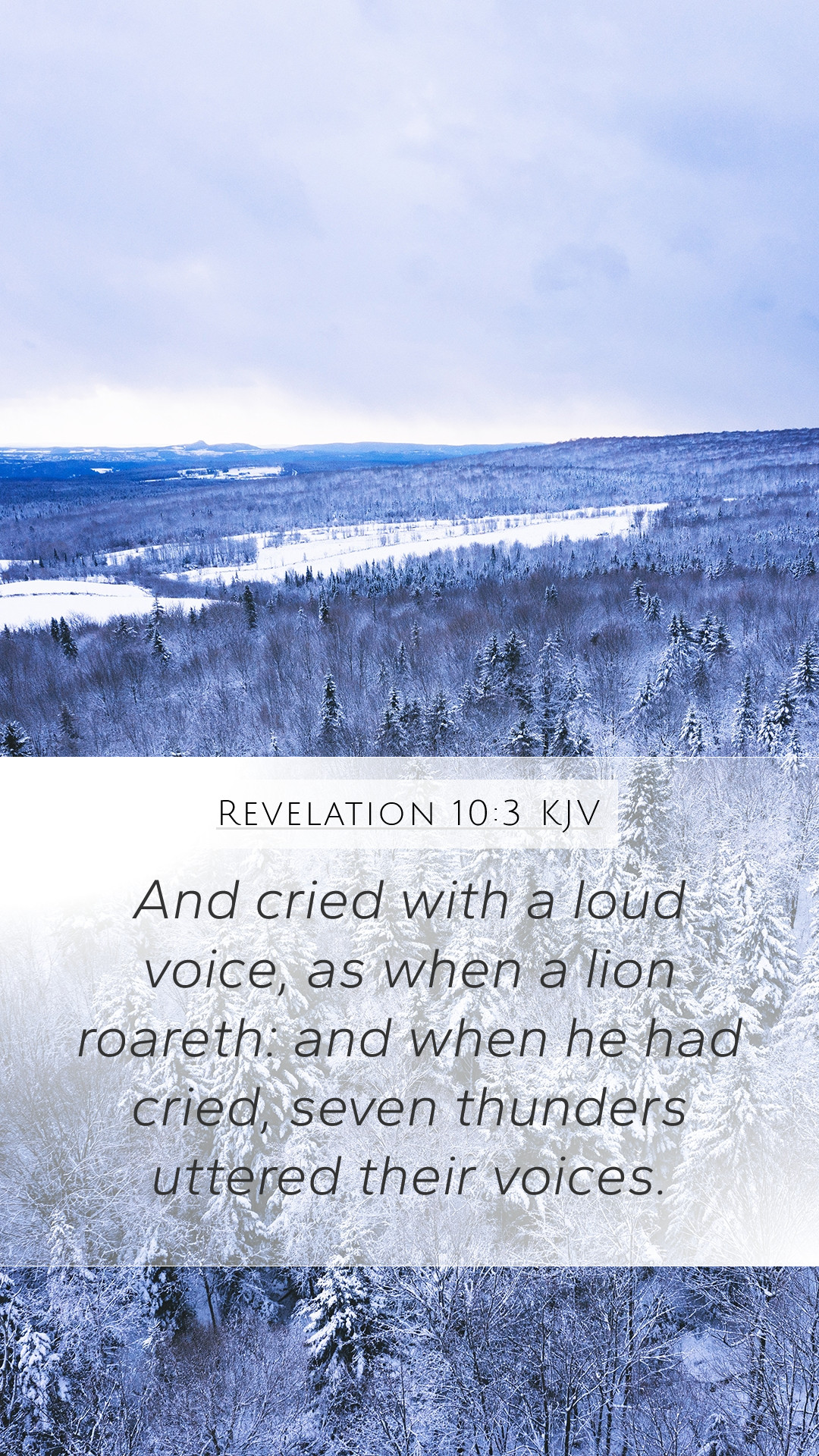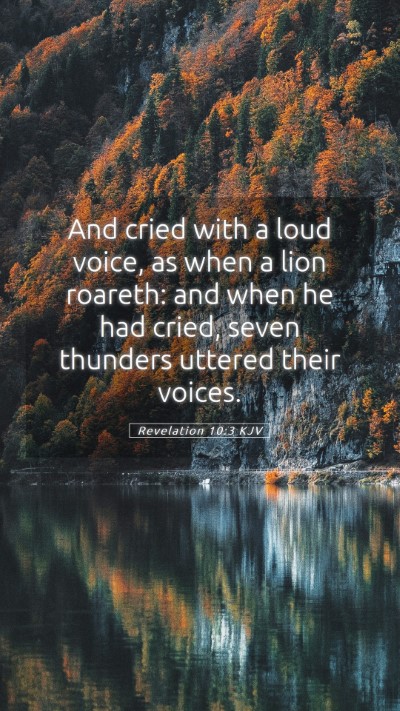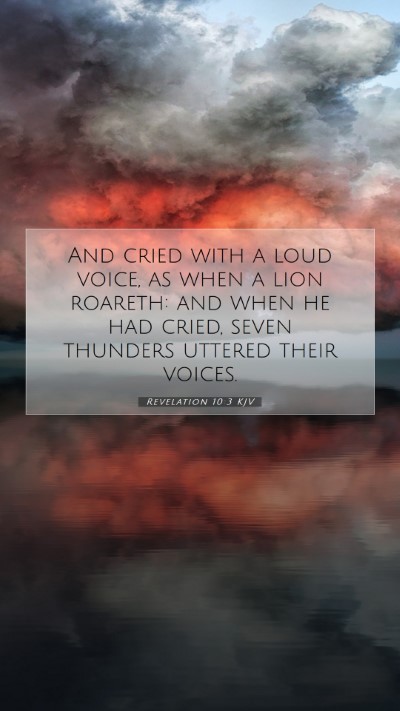Bible Verse Meaning: Revelation 10:3
Revelation 10:3 states: "And cried with a loud voice, as when a lion roars: and when he had cried, seven thunders uttered their voices."
Interpretation Overview: This verse is part of a larger vision in the Book of Revelation, where the angel's proclamation signifies a moment of profound divine announcement. The imagery of the lion's roar speaks to authority and power, indicating the seriousness of the message being conveyed.
Summary of Insights from Commentaries
-
Matthew Henry’s Commentary:
Henry emphasizes the dramatic nature of the angel's cry, comparing it to a lion's roar, which evokes the idea of strength and majesty. It indicates the gravity of the information being revealed, possibly concerning God's plans for judgment and the end of times.
-
Albert Barnes’ Notes:
Barnes interprets the "seven thunders" as representing completeness and divine authority in issuing proclamations. He notes that the voice of the thunders, though initially concealed from John, suggests hidden messages or truths that will be revealed in God's timing.
-
Adam Clarke’s Commentary:
Clarke remarks on the significance of the 'seven thunders' in biblical symbolism, representing God's voice and a declaration of His will. He connects this to the Old Testament prophetic tradition, where thunder often symbolizes the presence and judgment of God.
Contextual Analysis
This portion of Revelation takes place within a series of judgments and visions illustrating the unfolding of God's plan. The angel's loud cry is punctuated by the seven thunders, indicating divine authority and the sealing of certain prophecies. This encounter suggests the impending fulfillment of God's promises and the culmination of history.
Theological Implications
The roar of the lion symbolizes Christ, who is referred to as the "Lion of the tribe of Judah" (Revelation 5:5). Thus, the passage has implications for understanding Jesus' role in authority and judgment. The thunders indicate that God’s message is often beyond human comprehension yet is fully reliable and authoritative.
Application for Today
For modern readers, Revelation 10:3 serves as a reminder of the seriousness of God’s words. Just as John faced the overwhelming presence of the angel, believers today are called to respect and respond to God’s revelations in Scripture. This serves as an exhortation for Bible study groups and individual believers to engage deeply with Scripture, seeking to understand and apply its truths in their lives.
Related Bible Cross References
- Revelation 5:5: Reference to Jesus as the Lion of the tribe of Judah.
- Psalm 29:4: The voice of the Lord is powerful; the voice of the Lord is full of majesty.
- Job 37:4: Thunder's voice is often a sign of God’s mighty action and presence.
Conclusion
In conclusion, Revelation 10:3 encapsulates themes of divine authority, revelation, and the power of God's voice. The interpretation of this verse, enriched by public domain commentaries, offers valuable insights for understanding Scripture, aiding in in-depth Bible verse analysis, and facilitating meaningful Bible study lessons.


